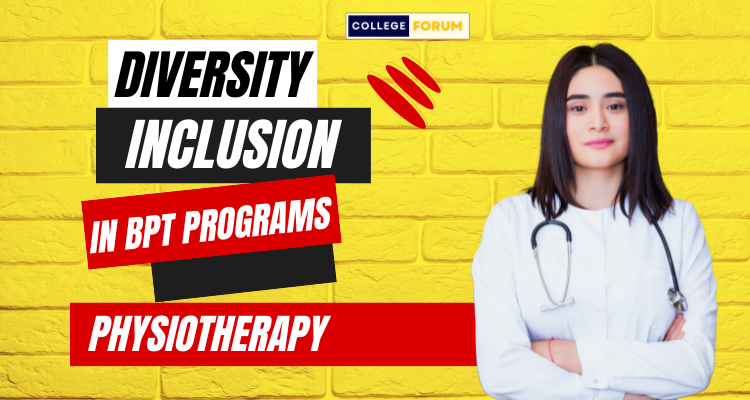In the ever-evolving landscape of healthcare education, the importance of diversity and inclusion within Bachelor of Physiotherapy (BPT) programs cannot be overstated. As society becomes increasingly aware of the myriad benefits that diverse perspectives bring to various fields, the realm of physiotherapy education is also recognizing the need to foster an environment where students from all walks of life can thrive. The best BPT colleges in Dehradun, much like their counterparts globally, are at the forefront of this transformative movement, striving to create programs that not only welcome diversity but actively celebrate it.
The Imperative for Diversity in BPT Education
Diversity in BPT programs extends beyond mere representation; it is about creating an educational ecosystem that reflects the varied tapestry of human experience. This inclusivity encompasses different cultures, genders, socioeconomic backgrounds, abilities, and more. The rationale is clear: a diverse student body fosters a richer learning environment, promoting empathy, creativity, and a deeper understanding of the diverse patient populations that graduates will eventually serve.
Moreover, inclusion within these programs ensures that all students, regardless of their background, have equal opportunities to succeed. This involves providing accessible resources, supportive learning environments, and curricula that address health disparities and cultural competence in patient care.
Challenges to Achieving Diversity and Inclusion
Despite the recognized benefits, achieving true diversity and inclusion in BPT programs faces several challenges. These range from systemic barriers in education and healthcare to personal biases that may influence admissions processes, student interactions, and even faculty hiring practices. Additionally, socioeconomic factors can significantly impact a student’s ability to pursue higher education, necessitating scholarships, grants, and other financial supports to level the playing field.
Strategies for Enhancing Diversity and Inclusion
The best BPT colleges in Dehradun are actively employing a variety of strategies to address these challenges. Holistic admissions processes that consider a candidate’s personal experiences and potential contributions to the field, alongside academic achievements, are becoming more common. Such approaches help mitigate the impact of standardized test scores and GPAs, which may not fully reflect a candidate’s capabilities or potential.
Curriculum reform is another critical area of focus. Incorporating courses that address global health issues, cultural competency, and the social determinants of health can prepare students to serve diverse populations more effectively. Furthermore, offering mentorship programs and fostering an inclusive campus culture can significantly enhance the educational experience for all students, particularly those from underrepresented groups.
The Role of the College Forum
The college forum plays a pivotal role in this endeavor, serving as a dynamic platform where students, educators, and administrators can engage in meaningful dialogue about diversity and inclusion in BPT programs. It provides a space for sharing best practices, discussing challenges, and celebrating successes in creating more inclusive educational environments.
Through active participation in forums, students can voice their needs, concerns, and ideas, contributing to the ongoing development of their programs. Likewise, educators and administrators can gain valuable insights into the student experience, helping them to implement more effective policies and practices.
Conclusion
As the demand for physiotherapists continues to grow, ensuring equitable access to high-quality BPT education is more important than ever. By embracing diversity and fostering inclusion, BPT programs in Dehradun and beyond can prepare a new generation of healthcare professionals ready to meet the needs of a diverse society. The journey towards this goal is ongoing, but with the collective efforts of students, educators, and institutions, significant strides can be made in creating BPT programs that truly reflect the values of diversity and inclusion.







